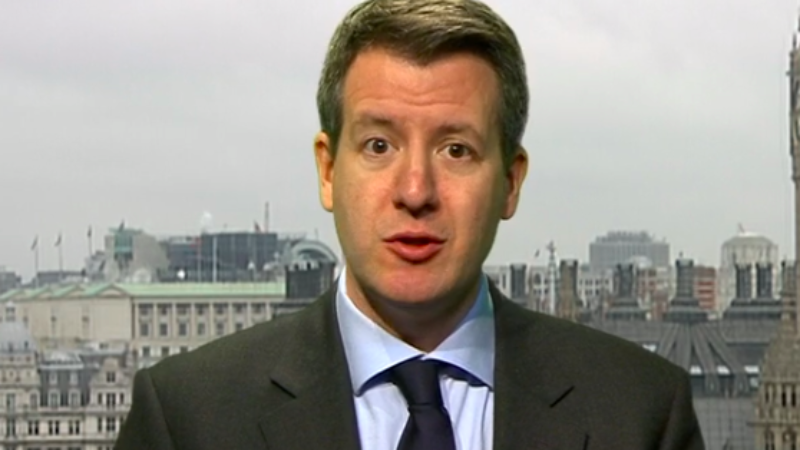

The Government’s ‘Trade Bill’ may only contain a dozen short clauses, but the implications for our economy and alliances with the rest of the world could not be greater. Brexit threatens to rip up not just our primary free trade agreement with our closest neighbours, it also nullifies the series of over 40 free trade agreements that the UK and EU made with countries across the globe. Leaving risks winding the clock back four decades and forcing us to try and reconstitute what we already have.
Ministers are starting from scratch, asking Parliament to reconfirm trade deals that we’ve been a member of by virtue of our place in the EU and, in the process, requesting sweeping executive powers to implement other trade agreements by Order.
We’re out of the habit of focusing on trade in our domestic political and parliamentary discussions. But there are important debates to be had about trade – an area of policy that we’ve delegated to EU institutions for several generations. We take for granted the ability to buy and sell goods and services across the globe, but without trade deals covering nearly two-thirds of our trade we’d see tariffs hitting consumers, the cost of living escalate and the range and quality of modern products and facilities not available in our shops. Global open markets are in the best interests of jobs and prosperity, if they are well regulated through carefully negotiated and fair agreements. Free trade accounts for a rise in living standards at home where new employment opportunities have been built on the specialisms at which we excel, and abroad where vital income can be generated for developing nations. But there are always crucial questions that need addressing and watching closely. Are deals adequately safeguarding the environment and human rights? Can the deals we do secure guaranteed higher labour and safety standards? Are we doing enough to combat unfair and anti-competitive subsidies in non-market economies? The danger if we leave the European Union is that we may no longer have as much leverage to insist on some of these conditions in future deals, nor afford the luxury of picking and choosing as our options shrink away.
Britain’s trading relationships are crucial, therefore. But the Government’s proposals to place all these questions solely in the hands of Ministers and treat Parliament as less than a rubber-stamp should not stand. Of course, we were originally told that legislation like this Trade Bill and the EU Withdrawal Bill were not really about altering policy but merely administrative necessities. Yet this is turning out to be no copy-and-paste exercise. If it was, Ministers would be replicating the existing scrutiny and approval processes for trade deals that MEPs in the European Parliament currently exercise over new agreements. There, the European Parliament might not lead in the negotiation process (that’s for the European Commission officials to do under a mandate approved by the Council of Ministers), but democratically elected representatives do have important powers. First, MEPs have the right to be kept ‘fully informed’ at every point of the process, with rights to question the Commission on what is happening. Second, the European Parliament has the ability to pass comments and resolutions on the nature of negotiations and crucially their consent is normally required before the agreements can be finalised. Third, individual national Parliaments can then scrutinise deals via long established EU scrutiny procedures – such as the EU Scrutiny Committee chaired by Bill Cash and capable of requiring a debate on the floor of the Commons.
Yet these layers of consultation and consent are absent from Liam Fox’s Bill. No obligations to reference or consult with Parliament. No replacement procedures for scrutinising and cross-checking. No affirmative power to approve treaties by right. It’s some irony that Liam Fox isn’t even keeping the powers that Bill Cash currently has over new trade treaties through his committee!
A better balance should be struck in this Trade Bill, allowing Ministers the flexibility and leeway to have frank discussions and negotiations, but keeping Parliament in the loop, appropriately informed, and with the power to have the final say. That’s why the Bill needs amending to ensure that Ministers have to consult on draft agreements, give Parliamentary committees the chance to recommend amendments, after which they can revise the draft or proceed straight to a vote on a motion. This ‘super-affirmative procedure’ was used by Ministers in the Crime & Courts Act 2013 and is right for this Bill. It allows deals to be done but closely replicates the existing scrutiny powers that MEPs currently have.
Those who wanted to ‘take back control’ and throw our existing trade policy up in the air should at least have the good grace to allow Parliament to take over the role that MEPs have fulfilled so far. Repairing and replicating our existing trade alliances will be a gargantuan task – and holding Liam Fox and Boris Johnson to account for their actions will be vital.
Chris Leslie is MP for Nottingham East




More from LabourList
‘Security in the 21st century means more than just defence’
‘Better the devil you know’: what Gorton and Denton voters say about by-election
‘Unity or division’: Starmer’s message to voters in Gorton and Denton